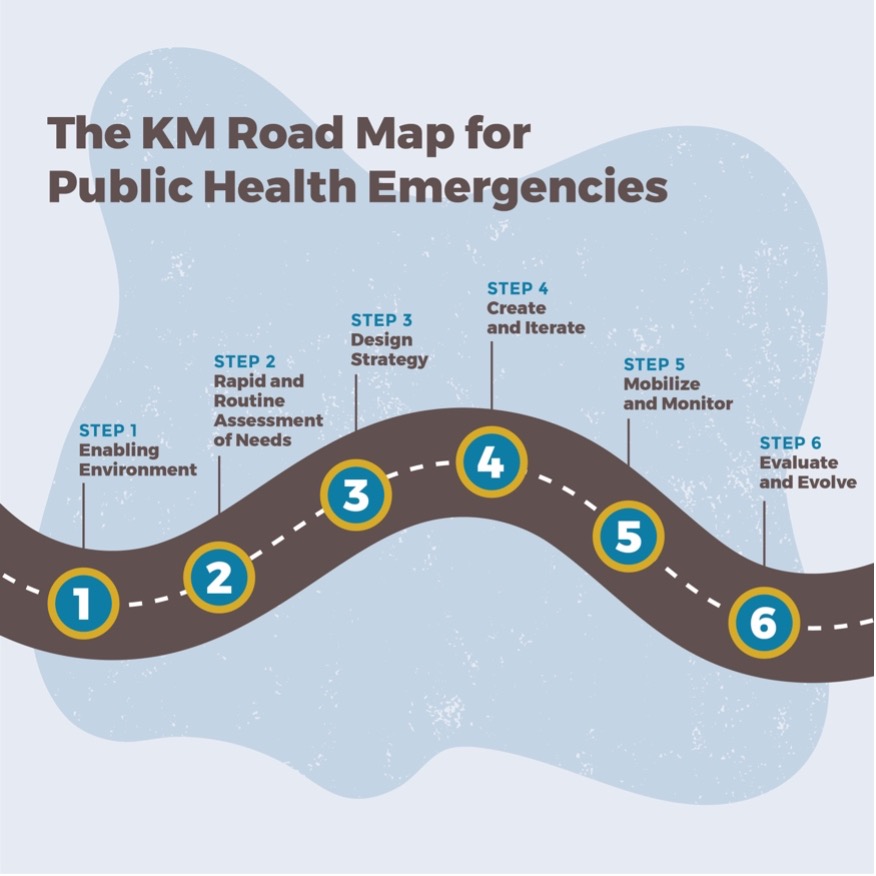Discover a 6-step systematic process for applying knowledge management in a public health emergency
During a public health emergency, it is essential that public health professionals have access to accurate, up-to-date information they can use to inform their work. However, given the quantity of information being shared during such an emergency this can often be challenging. In emergency settings, where speed is of the utmost importance, Knowledge Management (KM) tools and techniques can strengthen collaboration and knowledge exchange and ensure the latest evidence is put into practice. This KM Road Map for Public Health Emergencies provides an overview of how to implement KM during a public health emergency, such as an infectious disease outbreak. It outlines a step-by-step process that implementing partners, public health professionals, and donors can adapt to their contexts.
What training participants will learn
- How to apply the KM Road Map to a public health emergency response.
- How to design KM interventions that address choice and cognitive overload during a public health emergency, using case studies that can be applied to each step of the KM Road Map.
- How to use customizable templates to help guide implementation of the KM response in their own emergency context.
The Knowledge Management Training Package and the accompanying website, managed under the Knowledge SUCCESS (Strengthening Use, Capacity, Collaboration, Exchange, Synthesis, and Sharing) Project, are made possible by the support of the American People through the United States Agency for International Development (USAID). Knowledge SUCCESS is supported by USAID’s Bureau for Global Health, Office of Population and Reproductive Health and led by the Johns Hopkins Center for Communication Programs (CCP) in partnership with Amref Health Africa, The Busara Center for Behavioral Economics (Busara), and FHI 360. The contents of this website are the sole responsibility of CCP. The information provided on this website does not necessarily reflect the views of USAID, the United States Government, or the Johns Hopkins University.


